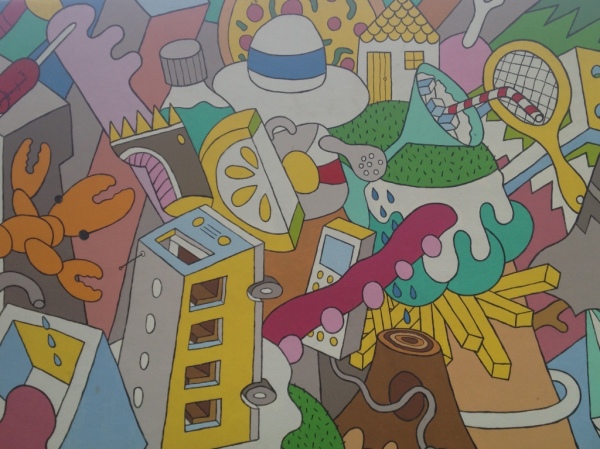By Jaime Ruiz-Gutiérrez
The creation and production of knowledge has been a monopole of industrialized economies. Their economic conditions are the guaranty to provide the better conditions to reach a privileged status. Generally, knowledge creation processes tend to have a predominant ethnocentric focus, in which so-called rich country or developed economy perspectives have prevailed. However, there are disciplinary subjects where the production of knowledge can be influenced not only by economic conditions but by cultural aspects as well. Arts management knowledge is a good example to support this proposition presented in the present post.
Arts Management is a relatively new discipline recently emerged as an important academic field. Its recent development is based on scholarly research due to increased Arts Management education programs, research networks of academics, and dedicated academic journals. At the extent of the evolution of Arts Management as a discipline, it becomes necessary to study a number of fundamental concepts specific to its development. The review of the literature which is based this article has revealed that mainstream academia has focused on Arts Management in developed economic countries. This characteristic has been even more predominant given the relatively hedonic character of these types of activities, mainly in terms of their origins that associate these processes with opulence, squandering, and leisure.
This research proposes a different vision of Arts Management. An alternative and complementary approach that allows, validates and promotes other perspectives of value creation in Arts Management. In Latin America, a number of arts and culture-manifestations can rely only on their own cultural identity as a source of value creation. This is the case for music and other manifestations of social identity, such as work, social relations, popular representations, and heritage- all of which are culturally rooted and fulfil an indispensable economic function for the community. In most of these experiences, the social contributions produced through intuitive and spontaneous management processes, are of greater importance and impact for their respective community.
Culture is part of the heritage of any social group; it constitutes its distinctive element and is the source of its social dynamics. From this basis on, the article describes three value creation experiences fostered by art and culture through deliberate actions in emerging societies, in Latin America. The three cases, two from Colombia and one from Brazil, briefly described, suggest a number of conclusions in terms of the forms of management that are emerging as a result of these processes. Although it is not an exhaustive study, the cases considered set out clear perspectives in this direction.
The Art Management model proposed in the article is described as participative and conflictive, involving a bottom-up dynamic and a trial and error strategy. This practice, in turn, gives way to a process of organizational learning. In this perspective, the fundamental management goal consists in achieving the institutionalization of the given promoted activity, whereby art and culture are the instruments used to promote the legitimacy required to achieve such institutionalization.
In conclusion, culture shapes the vision of the reality, even in the case of managerial models. This case corresponds to arts and cultural management, in which the Latin-American context gives new and different insights to propose a specific arts and cultural management model with its own characteristics. This specific differs of the traditional model and extend its perspective.
The research of these aspects in the academic life of Latin-American universities, and research centers is mandatory, at the extent that the management of its artistic and cultural manifestations becomes more professional. Less intuition and more research must be the objective of the stakeholders interested in this important sector of Latin American society
The article is based on:
Arts Management in Developing Countries: A Latin American Perspective. International Journal of Arts Management. Special Edition Latin America. HEC Montreal. Spring 2016.
Authors:
Jaime Ruiz-Gutiérrez is an Industrial Engineer, DEA in mathematics and applications and he have obtained a Ph.D. in Mathematics Applied to Social Sciences at the E.H.E.S.S. at Paris in 1982. Since 1994 he is associate professor and researcher at the School of Management of the Universidad de los Andes, at Bogotá Colombia, where he leads the teaching and research as area director of Art and Culture Management.
Philip Stanley Grant received his PhD in Industrial Marketing and Management from KTH-Royal Institute of Technology in Stockholm, Sweden. Dr. Grant is currently an Assistant Professor of Marketing at the Universidad de los Andes in Bogota, Colombia. Having published in several leading marketing journals, Philip’s current research focuses on understanding the social value of Arts and Culture through the lens of marketing and management in developing countries.
François Colbert is Professor of Marketing and holder of the Carmelle and Rémi Marcoux Chair in Arts Management at HEC Montréal. In addition to his duties as supervisor of the master’s program in International Arts Management (MMIAM), he is founding Editor of the International Journal of Arts Management. He has been active in the field of arts and culture for over 40 years. He is the author of more than 160 publications, mainly on marketing of the arts.
Image source:
The author.

Leave a Reply